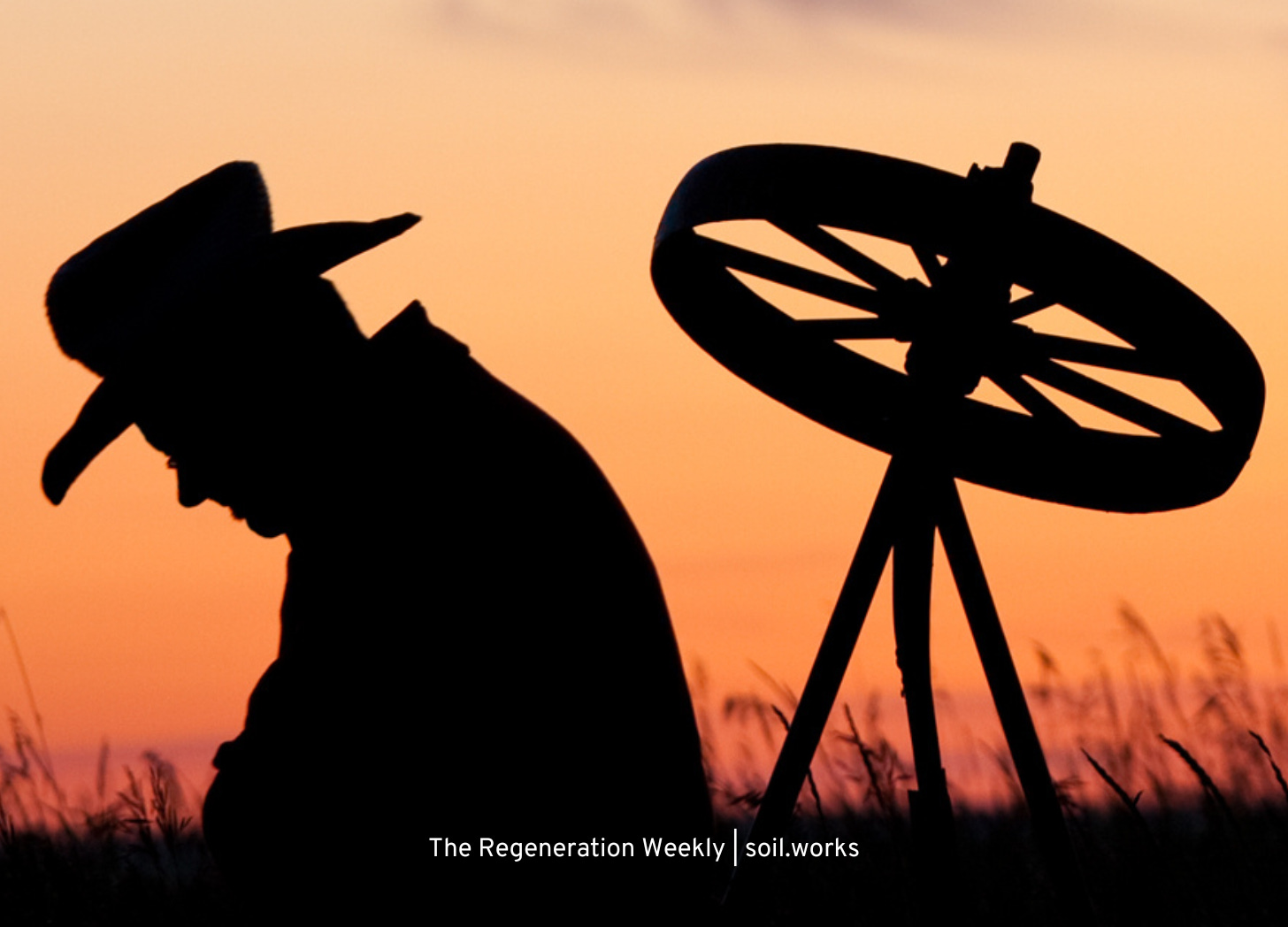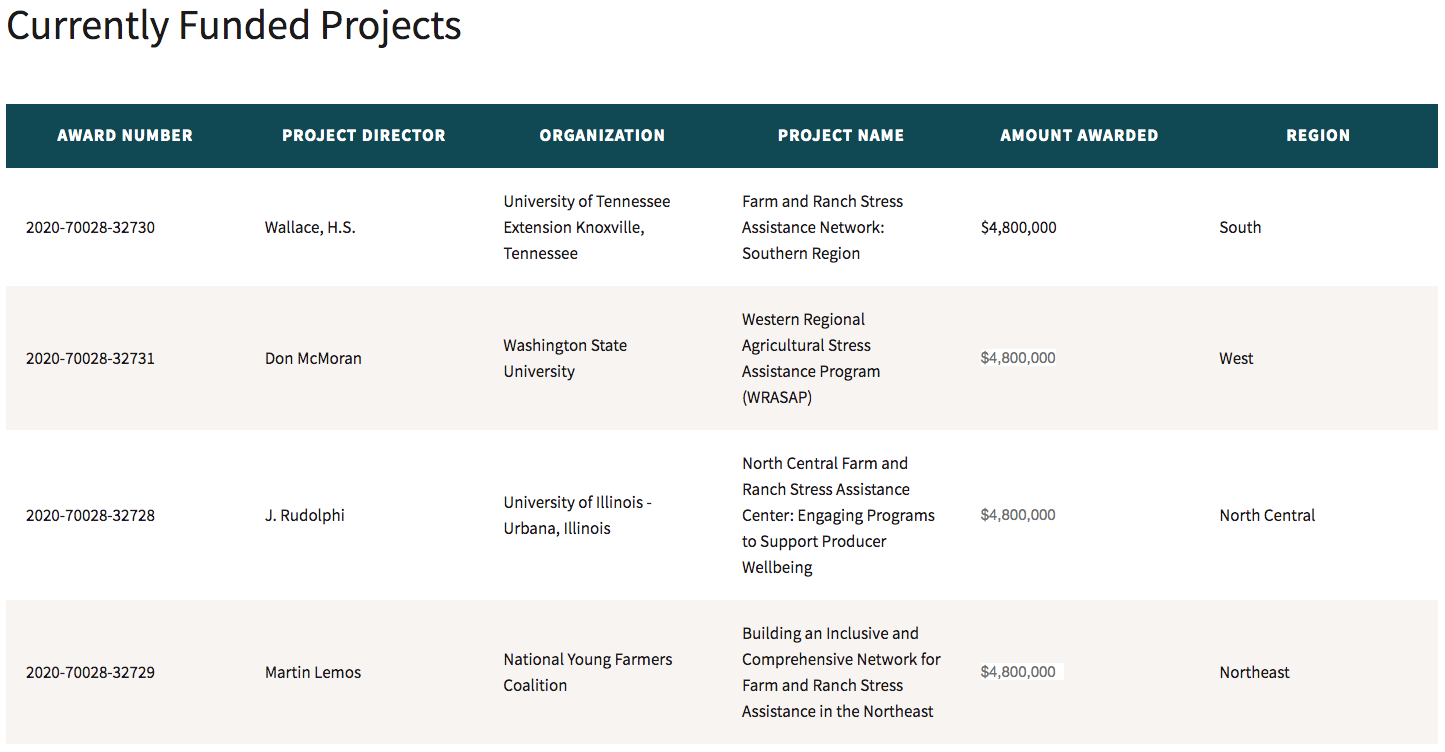The Toll on Farmers: Is overwhelming hardship a prerequisite?
As the stakes of our food and climate security rise, we can't afford to lose more farmers and ranchers to stress. Our food producers matter. What if crippling stress wasn't on their job descriptions?
From the high costs of doing business to being at the mercy of increasingly uncontrollable forces of nature, farmers and ranchers are no strangers to hardship.
The financial risks are high, crop prices are always fluctuating, input costs continue to rise.
Predators might overtake prized livestock and pests might feast on rows of tomorrow’s crops.
The physical work taxes the body and while weather is always unpredictable, climate change has caused unprecedented droughts, flooding, storms, and freezes.
It’s no wonder that farming is one of the country’s most stressful occupations.
Many typical consumers who’ve never stepped foot on a farm would guess terminal illness or a farm accident would consign farmers to an early grave.
Ask many farmers to share their greatest fear and expect to hear an answer that harkens back to an overwhelming amount of stress. Years of trying to protect their family land from encroaching banks or governments wear them down despite their love of farming.
A 2018 study from the University of Iowa found that between 1992 and 2010, farmers and ranchers had a rate of suicide that was, on average, 3.5 times that of the general population. Farmers of color face even more stress and health risks.
In 2021, the USDA announced $25 million to state Farm and Ranch Stress Assistance Networks (FRSAN) to build crisis hotlines, establish anti-suicide training, and offer free or low-cost counseling, among other services.
But Lori Mercer, a Farm Aid hotline operator, shares that getting farmers to use these services is “just the tip of an iceberg. Most don’t reach out because of their streak of independence and pull-yourself-up-by-the-bootstraps mentality.”
Every day, farmers bear the burden of their crops and livestock, land, families, and communities. Now they also bear the burden of climate change.
The question then becomes: are farmers doomed to buckle under the weight of all of this stress? Is there a better way?
Enter regenerative agriculture.
Research has shown that farmers’ job satisfaction—and hence their emotional well-being—is often higher when they employ more sustainable, non-extractive practices, said Michael R. Rossmann, Ph.D., an Iowa farmer and agricultural psychologist.
Researchers from Iowa State University found that sustainable farmers reported “improved physical health, reduced job stress, more challenging and satisfying work activities, and more satisfying family and community relations”—all potential boons to their mental health.
“When you feel you are farming in a way that benefits consumers and sustains the resources needed to farm, you feel satisfaction,” Rosmann said. “It’s hard to change, but if farmers don’t, they’re going to lose out.”
As the percentage of people who work in agriculture continues to drop, our food system and planetary health can’t afford to lose any more farmers and ranchers.
A 2021 study of regenerative and conventional graziers concluded the following:
Those practicing regenerative farming have higher eudaimonic well-being when compared with other farmers of similar farm type, age, and gender
Regenerative farmers scored much higher on measures of farmer self-efficacy (coping and optimism)
Regenerative farmers were more satisfied with their health compared to other farmers
Regenerative agriculture is not only about 78% more profitable than the industrial model, but it’s also healthier for the farmer, the planet, and everything in it.
So what’s stopping farmers from flocking to regenerative agriculture?
Many factors, one being the lack of community support. Many farmers view regenerative practices as risky or in conflict with what is normally accepted as farming practice.
My local rancher, Thomas Locke of Bois d’Arc Meat Co., once told me:
“The biggest challenge I think any group trying to scale regenerative beef will face is convincing farmers to adopt the practice. Folks out here would rather fail together than succeed alone. No one wants to be the black sheep, and when folks are set in their ways, adopting a big learning curve is close to impossible. It is entirely possible, especially by targeting younger farmers, and people who will inherit the land and still want to farm. The person communicating all of this, though, needs to be someone they trust. That's really important.”
We’re at a precipice. Farming stress is at an all-time high and climate change and its subsequent disasters are accelerating.
But more folks are demystifying regenerative practices. More farmers and ranchers are adopting them and reporting increased profits, greater yields, and, perhaps most importantly, higher well-being.
The mental health of our food producers matters. It’s time we encourage and remove barriers to giving them access to regenerative (in every aspect of the word) support.
Like this? Join the conversation.
Mental Health Resources
If you or someone you know needs immediate mental health support, there are a number of national hotlines available:
Farm Aid Hotline: 800-FARM-AID (327-6243) Monday-Friday 9 a.m. – 5 p.m. ET
National Suicide Prevention Lifeline: 800-273-TALK (8255) 24/7
211, a comprehensive hotline that connects callers with local resources
911 in an emergency
The Rural Health Information Hub also maintains a detailed page dedicated to farmer mental health and suicide prevention.
Disclaimer: The Regeneration Weekly receives no compensation or kickbacks for brand features - we are simply showcasing great new regenerative products.
If you have any products you would like to see featured, please respond to this newsletter or send an email to meg(at)soil.works
The Regeneration is brought to you by Wholesome Meats | Soilworks | Grassroots Carbon| Grazing Lands



